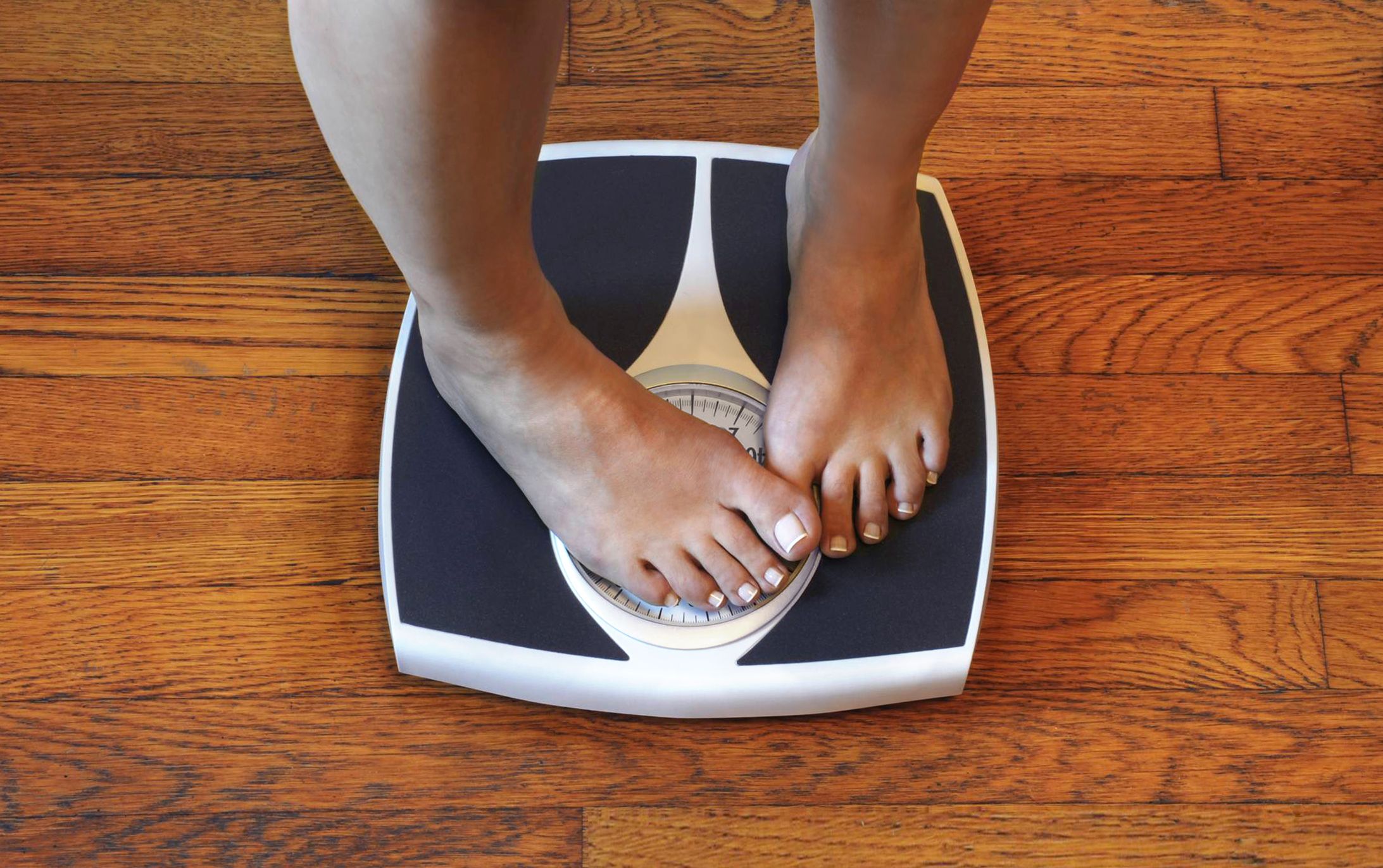Cambridge Diet: 1:1 Diet weight loss plan explained

Is the Cambridge Diet the key to rapid weight loss and how does it work?
The Cambridge Diet, now called the 1:1 Diet, is famous for promising rapid, drastic weight loss results. The plan is based on a range of meal replacement bars, soups, shakes and dishes that are designed to fulfil your daily nutritional requirements while keeping calories super low.
Originally devised as a hospital weight loss programme at Cambridge University – hence the name – and launched to the public in 1984, today's iteration of the Cambridge Diet plan follows six staggered 'steps', and includes one-to-one support from a dedicated, trained diet consultant.
Curious about how the Cambridge Diet works? We spoke to food scientist and nutritionist Susie Debice, nutritionist Rob Hobson, head of nutrition at Healthspan, and Chris Allsbrook, nutrition coach at OriGym Centre of Excellence, to find out more about the programme, including whether it's safe and effective:
What is the Cambridge Diet?
The Cambridge Diet is a very low-calorie diet meal replacement diet that dates back to the sixties. Initially developed for people suffering from morbid obesity, the plan was created by nutritionist Dr Alan Howard at the University of Cambridge, a pioneer of obesity research and co-founder of the International Journal of Obesity.
Relaunched recently as the 1:1 Diet – to highlight the direct one-to-one support provided by the diet consultant – the Cambridge Diet follows a framework of 'steps' that are tailored to the individual in line with their personal goals. The first (and most extreme) step involves eating and drinking only Cambridge Diet products at around 600 calories per day.
The Cambridge Diet follows a framework of 'steps' that are tailored to the individual in line with their personal goals.
'Stage two and beyond gradually increases your caloric intake until you are consuming more substantial meals and are less reliant upon the pre-made products that come with the diet,' says Allsbrook. 'The aim with this is to implement healthier eating habits, and gradually transfer onus to the dieter to allow them to make the right nutritional choices.'
While this blueprint is similar to other meal replacement diets – Slimfast, for example – the main difference with the Cambridge Diet is the calorie deficit in which you keep yourself when following the diet, says Allsbrook. 'It's this drastically lowered calorie intake that prompts the weight loss that many have come to associate with 'crash' diets, and in particular the Cambridge Diet,' he says.
How does the Cambridge Diet work?
The Cambridge Diet has a three-pronged approach: a personalised plan, meal replacement products, and one-to-one consultant-led support. In a study by Oxford University published in The BMJ, 138 people with a BMI over 30 replaced their usual foods with Cambridge Diet products for eight weeks, eating approximately 810 calories per day, before embarking on a four-week food re-introduction phase and 24-week maintenance period.
Participants were given weekly one-to-one support for the full 12 weeks – and offered monthly support for the 24 weeks – providing goal-setting and problem-solving help, encouragement and reassurance, and preparation for the maintenance stage. After a year, those on the Cambridge Diet had lost 10.7kg on average, while the 140 participants who followed an NHS nurse-led weight loss programme lost 3.1kg.
What do you eat on the Cambridge Diet?
What you eat depends on which 'step' of the Cambridge Diet you're in. The first five steps include at least one meal replacement product, such as shakes, bars and smoothies:
Step One: At this stage, you exclusively consume meal replacement products.
Step Two: Three meal replacements a day, plus one healthy meal of your choice.
Step Three: Two meal replacements a day, plus a healthy breakfast, lunch and dinner.
Step Four: Two meal replacements a day, plus lunch, dinner, and an additional snack.
Step Five: One meal replacement, plus breakfast, lunch, dinner and a snack.
Step Six: The maintenance phase. There's no structured plan to follow, but you still receive support from the diet consultant.
The Cambridge Diet also offers non-meal replacement Step Up Meals, which can be incorporated from the second step onwards for those who prefer not to cook the 'healthy' meal at home. All the meal replacement products, snacks and meals contain 200 calories or less and are designed to be 'nutritionally complete', so you hit your recommended daily intake for vitamins and minerals.
Does the Cambridge diet put you in ketosis?
While the Cambridge Diet does not specifically aim to put the body into a state of ketosis, by its very nature ketosis can still occur, according to Allsbrook. 'Given the severe reduction in calorie intake, and the use of meal replacements that lack any substantial carbohydrate content – such as shakes and bars – ketosis can occur when following the Cambridge Diet, he says.
When there are no carbohydrates to draw from, your liver produces ketones from fat and burns them for energy instead.
What is ketosis? 'It's the name given to the metabolic state that occurs when you’re following a diet plan that has a very low (below 50g) intake of carbohydrates,' Allsbrook explains. 'Under normal circumstances, the body converts carbs into glucose, and uses this to produce energy for cells, bodily tissue and your organs.'
When there are no carbohydrates to draw from, your liver produces ketones from fat and burns them for energy instead. While this state does facilitate weight loss, 'it also reduces the body's overall energy levels,' Allsbrook says, 'often resulting in fatigue, headaches, muscle soreness or cramping, and digestive issues such as constipation or stomach aches.'
How much weight can you lose on the Cambridge Diet?
Many people report losing a stone in weight per month on the Cambridge Diet, though of course it depends on your starting weight, and how strictly you adhere to the diet. 'The low calorie consumption means your body will burn the reserves it has, and this in turn leads to fat burning and ultimately weight loss,' says Allsbrook.
Keeping the weight off, however, is another matter. 'Any diet is effective for weight loss if you can stick to it, but the problem is that not all of them are as effective at helping you to keep the weight off – which is partly dependent on you and the behaviour changes you have picked up along the way,' says Hobson.
How much does the Cambridge Diet cost?
Prices vary from consultant to consultant, the website states, but on average, you can expect to pay around £2.63 for a meal. Weekly, it adds, you can expect to pay around £55.23 – based on three daily Cambridge Diet meals and a weekly one-to-one consultation.
However, you do have to buy the products in advance. 'While a week of the Cambridge Diet may be less expensive than an average week's shopping expenses, there is a minimum obligation of two weeks of products, and the expenditure can mount up,' says Allsbrook.
The Cambridge Diet benefits and drawbacks
There are benefits and drawbacks associated with following the Cambridge Diet. Here are the key points to consider before you subsist on low-calorie shakes, soups and snack bars:
✅ The Cambridge Diet is straightforward
On paper, the Cambridge Diet is easy to follow – particularly Stage One, when you're consuming the meal replacement products all day. 'This diet tends to suit people with portion control issues, or anyone who doesn't like – or have time – to cook meals from scratch,' says Debice.
https://atrain.instructure.com/eportfolios/106/Home/9__F9_The_Fast_Saga_2021TW
https://winnebago.instructure.com/eportfolios/509/Home/TW9F9_The_Fast_Saga2021HD
https://jwoodard.instructure.com/eportfolios/539/Home/9__2021HD_9_9__4K
https://saac.instructure.com/eportfolios/267/Home/92021HDHD1080P
https://vk.com/@651011196-9-fast-and-furious-9-the-fast-saga-2021
✅ The Cambridge Diet can address harmful food habits
If you're struggling to break a cycle of takeaways and unhealthy snacks, the structure might help initially. 'In the short-term, the Cambridge diet helps break unhealthy food habits, address portion control and help create a positive mindset as weight loss is quickly experienced,' Debice. says.
✅ The Cambridge Diet is nutritionally complete
You'll consume the minimum intake of vitamins and minerals your body requires. 'Very low calorie diets can severely limit the nutritional quality of the diet – although in this case, the foods are nutritionally balanced by fortification,' says Hobson.
❌ The Cambridge Diet is restrictive
'My issue with this diet is that it is quite restrictive and relies on you using their products,' says Hobson. 'The range is limited and most of the meals are actually shakes, smoothies, soups and porridge. There could be a little diet fatigue given the types of foods on offer.'
❌ The Cambridge Diet comes with side effects
The side effects can be tough to stomach. In the Oxford University trial, 'overall side effects were more common in the [Cambridge Diet] group' than the NHS group. The side effects that were reported more frequently were constipation, headache, fatigue and dizziness.
❌ The Cambridge Diet can disrupt your metabolism
'Your metabolic rate may become compromised, making it harder to burn calories,' says Debice. 'So, when returning to your normal diet, it's likely that your weight will not only return but increase. A classic yo-yo weight response.'
❌ The Cambridge Diet is a quick-fix
As Hobson points out, sustainable weight loss requires addressing your cooking and shopping habits. 'What are the behaviour changes when you are being spoon-fed food, rather than making informed decisions on what healthy food choices are?,' he says.
Cambridge Diet: The bottom line
If you are considering following The Cambridge Diet, it's vital that do intensive research beforehand, 'particularly if you have any underlying dietary or immunological concerns, such as diabetes or a weakened immune system,' says Allsbrook. 'Always be aware of your limitations or pre-existing health conditions, as these can seriously impact how this crash diet affects your body, as well as the results you might see.'
Pre-existing health conditions can seriously impact how this crash diet affects your body, as well as the results you might see.
If you're even slightly unsure, he adds, 'I'd advise visiting your doctor and outlining what the diet will involve. They will be able to confirm whether this could work for you without putting your health at risk. It's also worth beginning your own exploration of nutrition. The Cambridge Diet is by no means a long-term solution, and when you move up the "stages" of the diet, you'll slowly start to introduce foods that are not in the form of a shake or bar.'
Remember, any weight loss programme worth its salt should put your health first. 'By far the best approach to sustainable weight loss is one that encompasses the principles of healthy eating with sensible portion sizes and a lifestyle that focuses on increased activity and exercise,' says Debice. &
![Oracle 1Z0-809 Practice Test - Best Preparation Material [2021]](https://img.thewyco.com/18-02-2021/3454dumpskey banner 19-08-2020.jpg.webp)
Oracle 1Z0-809 Practice Test - Best Preparation Material [2021]
- 1Z0-809 Questions site that offers you the best Oracle Java 1Z0-809 questions for the final 1Z0-809 exam.

A Whole Information On VMware 1V0-41.20 Certification 2021?
- The whole point of certification is that it independently and impartially verifies that you are complying to a standard. Irrespective of regardless

Easy Way to Clear SCP SC0-502 Study Material
- Real exam questions in PDF and Practice test format. Download dumps file instantly.

Benefits of Integrating Reactjs into Your Website!
- Reactjs were primarily used to render views in web apps that allow developers to create reusable components and are independent of each other. In case there is any issue in the web application, they w